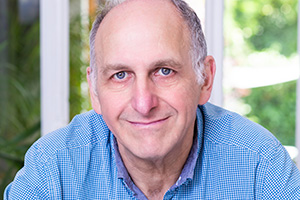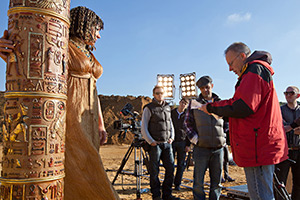How to be a great sitcom writer - one sketch at a time

Wherever you are on the ladder to comedy writing success, this piece of advice applies to all of you: the secret to becoming a great sitcom writer is to become a great writer.
As we approach the halfway stage of 2022, if your new year's resolution was to write a sitcom this year, my advice would be - wait three months. Wait another three months. Write it in 2023.
How do you become a great writer? If you want to be a novelist, you start by writing short stories. If you want to be a sitcom writer, you start by writing sketches. The BCG Pro sketch writing competition deadline is 31st July. Forget your sitcom for now, and start there.
Sitcoms are the hardest scripts to get right. I gained additional insights into how hard earlier this year, after reading several hundred of your opening ten pages.
Below is a list of eight skills that you need to have in abundance if you want to be a great sitcom writer:
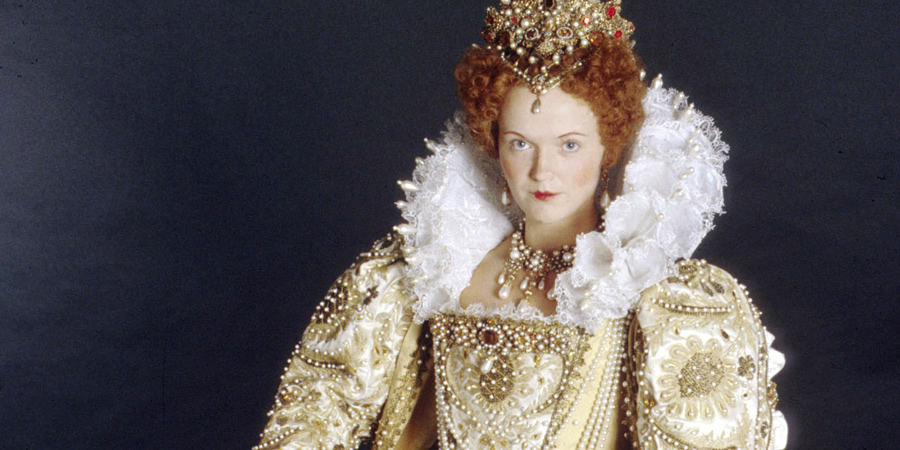
1. Character
You need to be able to create compelling, flawed, funny, believable characters. Not just one, you need a minimum of two or three in every show, all interacting and making us laugh because of who they are.
2. Story
Whether you're writing a comedy drama with a narrative arc or a self-contained sitcom where almost nothing changes, you need to be able to come up with loads of stories. They need to have twists and turns, but these all need to come as a consequence of bad decisions by your flawed characters.
3. Dialogue
You need to master the difficult art of writing conversations that sound realistic, and not something to be read by actors...
4. Jokes
...and they need to be funny. Not only that, but the best jokes, like the stories, come out of the characters' flaws.
5. World creation
How good are you at presenting underlying themes? How easy is it for us to imagine the place you have created? I've read a lot of your scripts and I can see that it's hard.
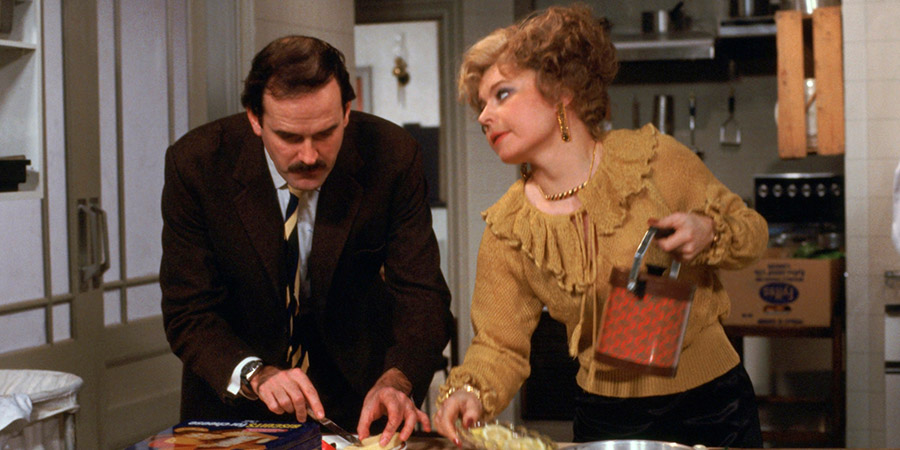
6. Structure
A big thing happens early on. The main character responds, everything they do makes things worse; problems escalate until all is lost. How do they get out of it? I'm simplifying the process of creation but not much. Everything needs structure.
7. Self-editing
We can all get better at self-editing. We're too emotionally attached to our stuff. We miss gaping holes. Agonise over irrelevant changes. We all need to improve at this.
8. Self-awareness
How honest are we about ourselves? The more we know who we are, the more depth of fallibility we can add to our scripts.
There's a simple exercise that you can do to get better at all of these and it's writing sketches.
But Dave, you say, nobody makes sketch shows anymore. Why should you write them?
The answer is because they will make you better comedy writers.
In the 1970s The Two Ronnies was a training ground for John Sullivan and David Renwick. Subsequent graduates from the sketch-writing nursery included Mark Burton (Madagascar, Wallace & Gromit), Simon Blackwell (Back, Breeders, The Thick Of It), Georgia Pritchett (Succession, The Shrink Next Door) and many more who went on to write some of the greatest British audience sitcoms.
You can YouTube or TikTok
Just because you can't find a home for them on TV and radio right now doesn't mean you shouldn't write them. On the contrary, there's never been a better time to create your own sketches.
If you can master the skills of sketch writing you can, very quickly, build up credits, and become known as a comedy writer that producers will want to employ. I'm making it sound easy, and of course the competition is enormous. But as people move away from watching shows on their TVs, and attention spans continue to decline, the online two-minute movie is set to become one of the most efficient calling cards for a new comedy writer.
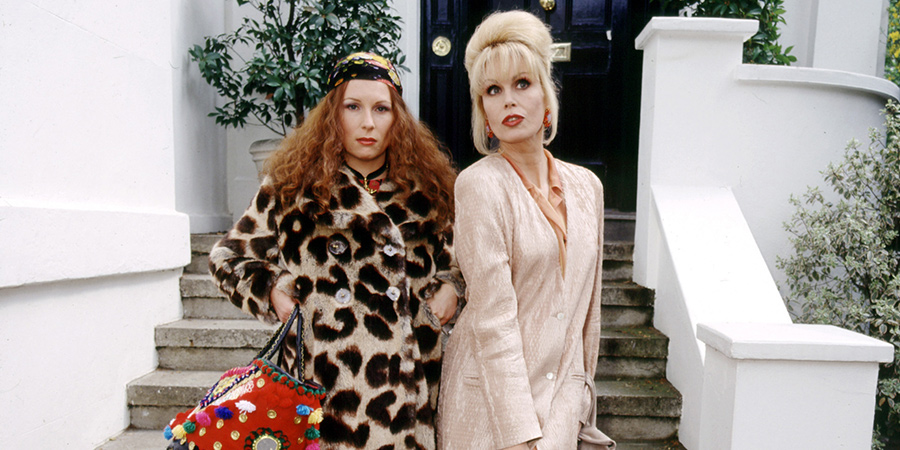
If you're still resistant to the idea of learning how to write sketches, here are some more comedy writers who began their careers creating them. French and Saunders made a number of sketch shows before Jennifer began to tackle sitcom in earnest - Ab Fab began as a French & Saunders sketch. Simon Pegg and Richard Curtis started as sketch writers, and Graham Linehan and Arthur Matthews were penning quickies for Alexei Sayle before they wrote Father Ted, and followed that with Big Train, possibly the most perfect TV sketch show ever.
What is a sketch?
If a sitcom is the equivalent of a one-act play, then the sketch is a short story. These days it rarely lasts longer than two minutes, but in that time contains a tale that encompasses all eight skills mentioned above.
Some shows have recurring characters but the truly memorable sketches are usually one-offs.
The beginning lasts a few seconds and establishes where we are and who is talking (the world). Then something happens: in comedy it's often called the "what if" moment. What if the pet shop owner who sold you that parrot was like a dodgy car mechanic? What if the teenage daughter was sensible and it was the mum refused to grow up? What if the hardware store owner misheard every request you made for items and kept bringing you the wrong thing? There's your character, story and first big joke and we're only 20 seconds in.
More jokes now, we hope, as a consequence of that first big one (story again). Sketches are short and dialogue must be snappy. You've got about a minute to escalate the action, to build to a second big moment (structure). Then you've got almost no time at all to resolve that moment and get out of the sketch.
More is more
You won't get it right first time, but the more of these you write the better you'll become at self-editing, and the more of your own flaws and weaknesses you bring to the writing, the more likely you are to hit the funny spot.
I've read thousands of sketches by writers at every level, and there is invariably one problem that stands out. Many people can write funny ideas, their "what if" moment can be hilarious, and the jokes that follow may all work, but it's that second twist that is nearly always missing from a sketch. Many writers take the strongest joke from their middle section and try and pass that off as the punchline, but it's never a second twist.
What you're looking to do, just like if you were writing a full-length movie, is escalate the consequences of the twist at the end of act one, so three-quarters of the way through the sketch we've reached a point of no return, and a joke is required to twist the story out of act two and off to the end.
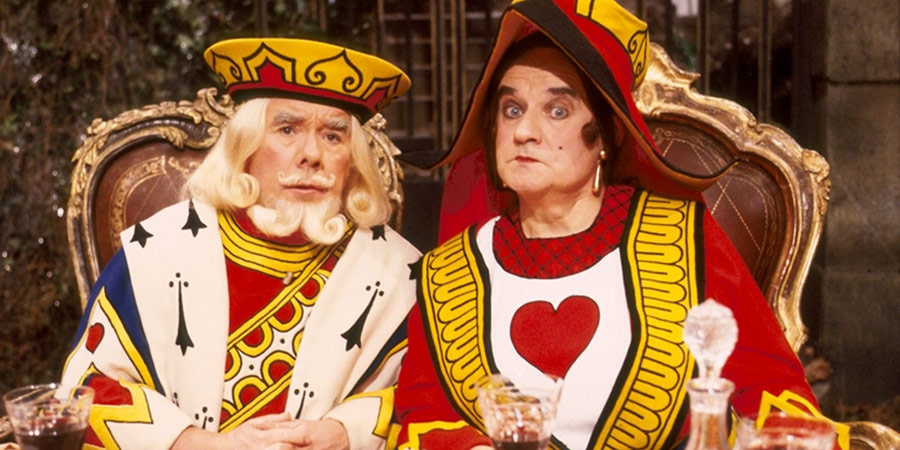
The Two Ronnies
John Sullivan and David Renwick, amongst others, learned how to write long-running sitcoms having spent hours not just writing funny sketches but sweating over those endings. That's the kind of work you do where you don't always have quantity to show, but one quality ending to a sketch is worth the effort.
If you want to be good at sketch writing you have to work really hard at it, and it may take longer to come up with that second twist than the whole of the rest of the sketch.
A typical 30-minute sketch show will have 15-20 sketches, some very short and maybe one or two longer ones, but most coming in around that magic two-to-three minute figure.
That means hundreds of great ideas. It may look like you've got hours of material - but much of it won't work, and you want to know this script will deliver a rock-solid 30 minutes of funny sketches.
Sketches are incredibly hard work. Not harder than going down a coal mine, or teaching Spanish to 30 bored teenagers, but as hard as anything that can be in comedy writing.
Creating sketches online requires a whole range of additional skills that I won't go into today. But no amount of smart-phone savvy, editing skills or marketing genius can turn your two-minute movie into a viral hit across the world. The most important point to remember is that every brilliant sketch, whether radio, TV or online, is already 95% great as a stand-alone piece of writing.
So give yourself between now and the end of the year to come up with a half hour of sketches. That's barely more than two a month. Not much, is it? But you'll probably have to write five to come up with one good one.
You won't notice an immediate change but by the end of the year I'm convinced you will be a much better writer.
Find out more about Dave's writing courses
This article is provided for free as part of BCG Pro.
Subscribe now for exclusive features, insight, learning materials, opportunities and other services for comedy creators.

